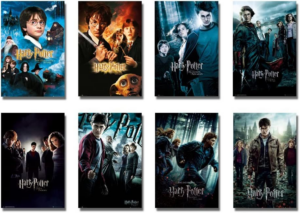A screenwriter, also known as a screenplay writer or scriptwriter, writes for visual media like film or TV. Though screenwriters can get overlooked by viewers of a film or TV series, they play an essential role in any project: they write the story.
What Do Screenwriters Do?
A scriptwriter can actually write a variety of things beyond your traditional movie script. Scriptwriters write:
- Feature-length films
- Short films
- Television series
- Web series
- Television and radio commercials
- Stage plays
- Computer games
Types of Screenwriters
Most screenwriters specialize in a genre, such as:
- Action
- Comedy
- Drama
- Fantasy
- Horror
- Sci-fi
Many screenwriters know how to write a variety of genres and for either film or TV. The way a screenwriter will approach their work will vary a lot depending on the specific project they’re doing.
Job Description
Scriptwriters write material that will be performed. They write all aspects of a script, from dialogue to stage directions. Screenplay writers need to be able to do a variety of things when crafting a script, including:
- Create characters
- Write believable dialogue
- Write engaging plots
The screenwriting process tends to follow these steps:
- Generate ideas
- Research ideas
- Plan the script
- Develop characters
- Write the script
Spec Scripts vs. Shooting Scripts
When you write a spec script, you’re writing on speculation. No one pays you to write the script, but you do it in the hope that you can sell it. Once your script is purchased, it becomes a shooting or production script. A spec script never should include elements of a shooting script.
How to Become a Screenwriter
The first thing any aspiring screenwriter needs to do is develop their writing talents. Developing this talent is fairly simple, since all you need to do is write anything you want. You don’t need to jump right into a major TV script or screenplay project. Just start honing your writing skills somehow, whether that’s writing plays, essays, short stories, or anything in between. You’ll start to grow comfortable with the process of writing while discovering your unique voice. From there, you can figure out what genre you’re drawn to as well.
Some writers find structured educational settings helpful, such as going to a film school, taking a college course, or attending a writing workshop online. Grades and deadlines can motivate you to sit down and work. When it comes to film schools, you’ll also have access to filmmakers, artists, and other writers to turn to for inspiration and connections that may lead to a job in the industry.
Salary and Benefits
Scriptwriters may work as salaried staff for production companies, but most work as freelancers and either work on a contract basis or sell scripts on spec. While there’s lots of money to be made as a screenwriter, there’s also a big disparity between super successful writers and lesser-known ones. Most screenwriters do other jobs to support their writing.
Working Hours
While freelance scriptwriting means a lack of job security, it also means you’re not restricted by typical working hours. Screenwriters may need to travel domestically or internationally to meet with producers and directors.
Education and Entry
Many screenwriters have degrees in subjects such as English, creative writing, or journalism. However, it’s very common to find screenwriters from other academic backgrounds. Many successful scriptwriters don’t even have undergraduate degrees. This industry honors talent regardless of academic credentials, and no specific degree is required for success.
No matter the path you take, you’ll want to hone your skills as a writer in general. From creating interesting dialogue to developing characters, you’ll use these skills when you’re writing scripts.
Training and Progression
There’s no set path to becoming a successful screenwriter. Those who have success show talent and work hard. Watching films and reading scripts as well as practicing your craft provides training.
Many screenwriters move to where they can find industry jobs to get a foot in the door. Los Angeles ranks first; New York City also features relevant jobs but to a lesser extent. After relocating, you can look for entry-level roles with a production that matches your talents and professional interest. If you want to write for a sitcom, go for a job as a PA (production assistant), studio runner, or writer’s assistant on a show. If you want to try dramatic writing for feature film, try for script reading or PA job at a production company that fits your interests.
Hollywood Programs for Screenwriters
You might consider applying to a highly competitive screenwriting workshop, fellowship, or program that will allow you to learn from and work alongside producers, directors, studio executives, and other writers. Some of these programs include:
- Warner Bros. Writers Workshop
- Disney ABC Writing Fellowship
- ABC Daytime Writing Program
- Disney and ABC’s Diversity Creative Development Program
- Nickelodeon Writing Fellowship
- Sundance Screenwriter’s Lab
- Don and Gee Nicholl Fellowship
- American Screenwriters Association International Screenplay Competition
Who Is a Screenwriter: Do You Have What It Takes?
Aspiring screenwriters list plenty of different motivating factors. Some will put you on a path to success.
Wrong Reasons to Want to Be a Screenwriter
If one or more of these reasons drive your desire to be a screenwriter, you might find more fulfillment from another career path:
- Money
- Desire to create beautiful writing for the writing itself
- Respect that comes with being an acclaimed artist
- Strong visual sense
- Desire to adapt your own novel or play — or even life story
- Desire to improve movie quality
Right Reasons to Want to Be a Screenwriter
On the other hand, if these factors motivate you, screenwriting can be a great fit:
- Money (as long as it’s not your primary objective!)
- Getting to tell stories
- Love for film or TV
- Reaching a huge audience
- Love of writing
Habits of Successful Screenwriters
Successful screenwriters employ these habits:
- They have a driving reason for writing.
- They set a high standard of excellence.
- They trust their instincts, and they write about things that excite them.
- They set writing goals and regularly write.
- They understand (and adapt to) the rules of screenwriting.
- They evoke emotions in those reading their scripts.
How to Write a Screenplay
Screenplays have set structures, including:
- The first page of the screenplay
- Screenplay elements, including:
- Scene heading
- Subheader
- Action
- Character
- Dialogue
- Parenthetical
- Extension
- Transitions, including:
- CUT TO:
- DISSOLVE TO:
- SMASH CUT:
- QUICK CUT:
- FADE TO:
- Shots, including:
- ANGLE ON —
- EXTREME CLOSE UP —
- PAN TO —
Software for a Screenplay Writer
By using software to write and format your screenplay, you can make sure your script sticks to industry standards. Useful software for screenwriters include:
- Final Draft
- Contour
- Movie Magic Screenwriter 6
- Movie Outline 3.1
- Save The Cat! The Last Story Structure Software You’ll Ever Need version 3.0
- Montage
- Dramatica Pro
Books for a Screenplay Writer
You’ll also want to read up on books, such as:
- Save the Cat!
- The Coffee Break Screenwriter
- The TV Writer’s Workbook
- Selling Your Story in 60 Seconds
- Writing the TV Drama Series
- The Screenwriter’s Bible: A Complete Guide to Writing, Formatting, and Selling Your Script
- From Script to Screen
- Hollywood Standard: The Complete and Authoritative Guide to Script Format and Style
- Story: Substance, Structure, Style and the Principles of Screenwriting
- Screenplay: The Foundations of Screenwriting
- The Screenwriter’s Problem Solver: How to Recognize, Identify, and Define Screenwriting Problems
Then, read successful screenplays! You can download free screenplay examples online. Here’s another great resource.
Script Presentation and Binding
Presenting and binding your screenplay also comes with specific rules and supplies you need to use. Items you need to send out a script include:
- Screenplay brass fasteners (also called brads)
- Screenplay brass washers
- Script covers (linen or standard card stock)
- Script mailers
- Three-hole punched paper
- Optional: Script-binding mallet
Next Steps
Once you create effective strategies for writing and start developing writing partnerships, you’ll want to:
- Start writing
- Keep writing
- Get notes (ask for some constructive criticism)
- Start networking, including going to networking events
Whether you’re interested in comedy, drama, or any other genre, you can use your writing talents to write scripts. You can learn more about becoming a screenwriter and how you can improve your skills by applying to the Nashville Film Institute here.














